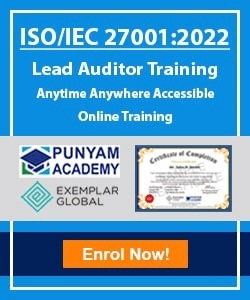The International Featured Standard (IFS) Food is a well-recognized, leading standard that attests to the safety and excellence of processed food products and manufacturing procedures. The most recent version of the standard, V8, has been revised to reflect recent market trends and guarantee that IFS Food customers get the most out of their certification. The review’s primary goals have been synchronised with the most recent iteration of the Codex Alimentarius General Principles of Hygiene and the impending ISO 22003-2, as well as with the inclusion of IFS Doctrine rules into the IFS Food Standard and taking into account stakeholder comments from IFS Food. The standard’s terminology has been defined. The scoring methodology and new requirements added to the audit checklist are only a few of the modifications made to the certification protocol.
IFS Food certification enables businesses to demonstrate to clients, associates, and customers their dedication to high-quality and safe food. IFS Food puts a strong emphasis on customer requirements compliance and on fostering business partnerships throughout the supply chain. The continuous improvement system of the certified companies is supported by the standard’s periodic review and updating procedure. There are significant revisions in the most recent IFS V8 standard, including:
- As is well known, in the IFS standard, an A grade indicates full compliance, whereas C and D scores indicate deviations. B score is a point that needs to be addressed and may result in a deviation in the future, whereas B score is regarded as a deviation from the current version. When the firm deviates from the B score, it will now lose 5 points while gaining 15 points. Anyone who receives a C deviation score will lose 15 points and gain 5 points. D deviation points will be penalised (-20).
- The IFS Food standard now formally incorporates the GFSI guideline that one out of every three inspections must be unaware.
- If you have a European Union PDO (Protected Designation of Origin) or Protected Geographical Indication with its Turkish equivalent, you can now add it to the IFS certificate with a disclaimer in the updated edition.
- The food safety culture item is planned to be revised, and targets for the following four culture items will be established.
- Sharing information on responsibilities and policies for food safety
- Education
- Employee feedback on food safety issues
- Performance measurement
- While complying with the documentation requirements of GFSI benchmarking and accreditation, the reporting time, number of doctrinal norms, and other administrative requirements have been greatly reduced.
- The structure of the standard’s requirements, which is also used as a list of questions, has been changed to more consistently follow the inspection process and increase the efficiency of the inspection; for example, food defence, which was previously a separate section, is now part of section 4.
- The revised versions of ISO 22003-2 and GFSI Benchmarking Requirements have been aligned with IFS Version_8 of the Codex Alimentarius.
- To better describe the objective of the standards, elements in the standard requirements, which are also used as a list of questions in audits, have been made more uniform and unambiguous. The term “Assessment/Assessment” used in IFS V7 by ISO 22003-2 has also been changed back to “Audit/Audit.”
So, if you are already started preparing for the IFS food V8 certification or planning for the certification, Punyam.com can help you. For IFS Food V8 certification, Punyam.com is the leading and one of the best consultants in India. Punyam.com offers IFS food V8 consultancy service under the direction of an accomplished IFS food consultant in the following phases to apply the IFS food version-8 standard for food product processor/manufacturer organisations and obtain IFS food V8 certification:
- The certification process starts with the micro-level survey of the existing system of the organization.
- Then conduct IFS food V8 and food safety awareness programs for all personnel.
- A task group and steering committee for IFS food V8 documentation. Also, prepare documents of IFS food V8 standard as well as risk/hazard analysis.
- Implementation and training of all personnel in the use of documented procedures and formats. Employees must be trained in the identification, evaluation, and control of issues regarding food safety. Along with that providing training to the internal auditors.
- The initial internal audit is used to evaluate the system.
- Take corrective actions for non-conformities and carry out management review meetings.
- Apply for certification. Assist the organization during the Final audit by the certification body.
- Assist the organization to take corrective actions on the nonconformities to the satisfaction of the certification body.
To know more about the consultancy service for the IFS food V8 certification, visit the official website of Punyam.com: https://www.punyam.com/ifs-food-certification-consultant.htm






